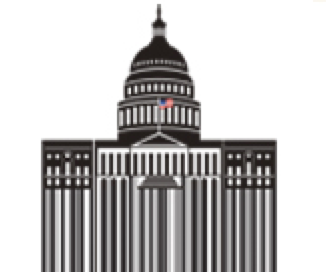Answers to Questions about American Media and Politics

A Facebook friend of mine said that he was going to be interviewed on television about the intersection of American media and politics, a topic he said he didn't have much expertise in, and needed assistance to prepare for the interview. To help, I wrote a series of Facebook comments in response to his questions, written on October 27, 2016. I've consolidated those posts into a single convenient page here.
How democratic is the US presidential elections? How ugly is it?
On a scale of 1 to 10 (1 being undemocratic, 10 being highly democratic), it probably ranks about a six. The USA has steadily increase the franchise to more and more people over time, and provisions to ensure the relative integrity of the ballot in a great many places. But the provisions are inconsistent in their application (with relatively few national standards), and it is undemocratic in being highly swayed by corporate involvement and media influence in shaping public opinion. What's more, the USA doesn't have a parliamentary system, so attempts for third-party challengers to enter the arena and succeed are highly unlikely. Further, because of the Electoral College, it is possible for a presidential candidate to get the most number of votes and yet LOSE the election (as happened at least twice).
Some argue that the us presidential debates have lost the essence of democracy and have rather turned into nothing more than a tv reality show. To what extent do you agree with such statement?
It's tricky to assess, given overlapping and opposing trends. On the one hand, the debates themselves have been steadily debased in terms of their content and their sophistication. Just look at the transcripts of the 1960 Kennedy/Nixon debates to the 2016 Trump/Clinton debates. On the other hand, the debates themselves, particularly among the American political elite, are quite narrow when it comes to a diversity of political opinion; where some inclusion can be had, it's usually when popular forces work their way into improving the range of political options in America.
How are the entertainment media shaping public opinion when it comes to politics in general and the presidential elections in particular?
For a long time, this was an easy question to answer: since the 1920s, major entertainment media of the consolidated corporate sort have served as the handmaidens of major political parties, and delegitimized any alternative or dissident views. You can point to 1930's film reels produced by Irving Thalberg who propagandized against Upton Sinclair in a close race for California governor which Sinclair lost. Television has been the dominant medium to shape public opinion in the 20th century, and long had an outsized role in shaping the outcomes of elections. The trend has long been quite clear: whoever spent the most money in TV ads usually won, and about 70% of the money raised by politicians goes to buy bad TV ads. But now with the ascendancy of the internet, that seems to be changing a bit; it's harder to assume that buying bushels of ads will buy you an election. How this will change is yet to be seen, considering that Trump's campaign has, by presidential standards, spent very little. One relevant point: in 2016, 80% of all of American ad dollars go to just two companies, Facebook and Google.
Where is Hollywood standing in 2016 elections? How about actors and actresses?
It's been my impression that Hollywood (at least outside of executive circles) has tended to skew liberal/left. I can think of scads of examples, now and in the history of 20th and 21st century American media, of workers in Hollywood ostracized for their politics. (Example: The noted author Dalton Trumbo, one of the Hollywood Ten, won an Oscar under a pseudonym because he was blacklisted for his political views.) I don't know of any surveys to track this, but I gather that the number of non-executives in the media who may skew right are considerably outnumbered by those who skew liberal left. There is one distinction to keep in mind, we're talking about those producing the major media, which is quite different from the CONTENT of the media themselves. Invariably, that has mirrored the reflection of the society themselves, which I think has improved over time as society has increasingly been more democratic.
Will presidency of either Clinton or Trump bring fundamental change to US?
I think the answer is "Yes" in either case. A Trump presidency would definitely bring fundamental NEGATIVE change, in the legitimation of racism, sexism, xenophobia, corporatism, and fly-by-the-seat-of-your-pants policymaking. A Clinton presidency can open the window for potential positive change, but it's naive to this that President Clinton will bring this herself. She won't, and probably can't. Positive fundamental change lies in the work that each of us does every day to improve things, as part of efforts and movements to win increasing improvements in our society. My impression is that such movements have more opportunities and room to expand and grow in a Clinton presidency.
Are there any other points you may like to raise on these issues?
The book "Dollarocracy" by John Nichols and Robert McChesney talks about the intersection of media, money, and elections, in staggering detail. I recommend the book highly. I interviewed Bob McChesney about the book on my previous radio program, From The Trenches: http://chicago.indymedia.org/node/23697
Previous: A candidate for the Unifying Theme of Activism
Next: Words to inspire